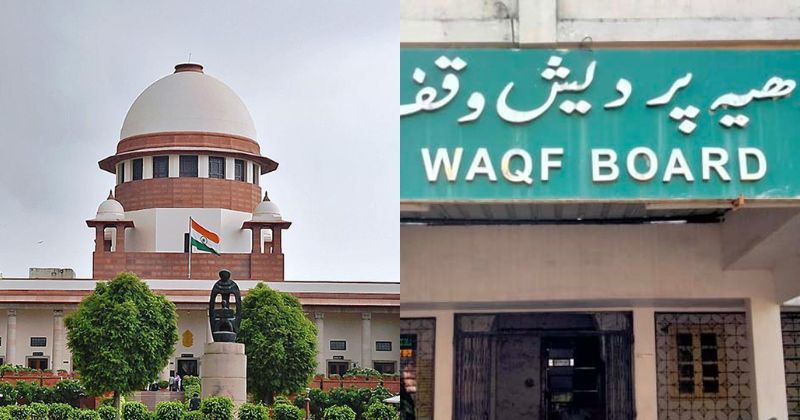C Pradeep Kumar
Land disputes in India are messy. But when religion, outdated laws, and unchecked powers collide, it becomes a full-blown circus. Enter the Waqf Act—a law that quietly lets an unelected board decide what’s theirs, what’s yours, and what no one even knew was in dispute—until now.
You wake up, sip your tea, and suddenly find out your house, school, or even your entire village has been declared Waqf property. Why? Because someone, centuries ago, supposedly sneezed in that direction and whispered, “For Allah.”
Now you rush to court—the temple of justice—hoping to reclaim your rights.
But wait. The Waqf Board says, “Sorry, courts aren’t allowed. Only we can decide if it’s our land.”
How convenient! The judge, jury, and beneficiary—all rolled into one divine body.
Is this a plot twist or a land grab manual?
What Is Waqf?
A Waqf is meant to be a pious donation by a Muslim—land or money—for the public good: a mosque, a madrasa, a hospital. A noble cause. No issues there.
The problem begins when Waqf Boards start playing Monopoly on steroids, declaring vast tracts of public and private land as Waqf—without informing actual owners—and then have the audacity to say, “Don’t go to court. Just come to us. We’ll decide if it’s ours.”
It’s like a thief saying, “Don’t call the police. Let me decide if I stole anything.”
The Waqf Amendment: A Magical Cloak of Immunity
Thanks to the 2013 Amendment to the Waqf Act, the Board was gifted a special power:
“No civil court shall have jurisdiction in any matter related to Waqf property.”
In simple words: “Don’t question us. We know best. Bow your heads.”
Now, if the Railways, Airports Authority, or private citizens say, “Wait, this is our land!” the Waqf Board replies, “Prove it… in our tribunal. Not in a neutral court. And even then, good luck.”

How is that not absurd?
Religious Monopoly Over Property Justice? Seriously?
Some Muslim groups go even further, demanding that only Islamic scholars and the Waqf Board—not the Indian judiciary—should decide such matters.
Wait, what? Are we in a theocracy or a democracy?
If tomorrow every religion wants a private court for their land, imagine:
- Hindus: “Only temple priests will decide temple land disputes.”
- Christians: “Only the Bishop’s Council shall judge church property cases.”
- Jains: “We want a tribunal in a cave. Silent, please.”
Absurd? That’s exactly what’s being demanded here—in the name of faith.
Why Courts Matter: Logic 101
Let’s break this down:
- Courts are neutral.
- Waqf Tribunals are… well, not.
- Anyone can misuse power if not held accountable.
- Property rights are fundamental, not spiritual tokens.
Irony? Even nationalized banks return your fixed deposit after maturity. But here, you could lose your land because some unseen Waqf register says it was donated 300 years ago—and you weren’t even told.
What the Constitution Says
India isn’t run by fatwas or religious boards. It’s run by a Constitution. It guarantees:
- Equality before law (Article 14)
- Protection of property (Article 300A)
- Judicial review (Basic structure doctrine)
So, any law—even the Waqf Act—cannot override the courts or fundamental rights.
The Supreme Court has already cracked the whip in several cases, reminding Waqf Boards they are not above the law—no matter how holy their intentions.
Yes, you’re right to question the absurdity of this system. Asking for religious immunity from judicial scrutiny in land matters isn’t just illogical—it’s dangerous.
It sets a precedent that could fragment India into religious fiefdoms, where faith replaces fact and holy stamps override land titles.
Let faith guide hearts, not land records. Let courts decide, not religious boards.
After all, we are governed by the Constitution—not a medieval manuscript.







